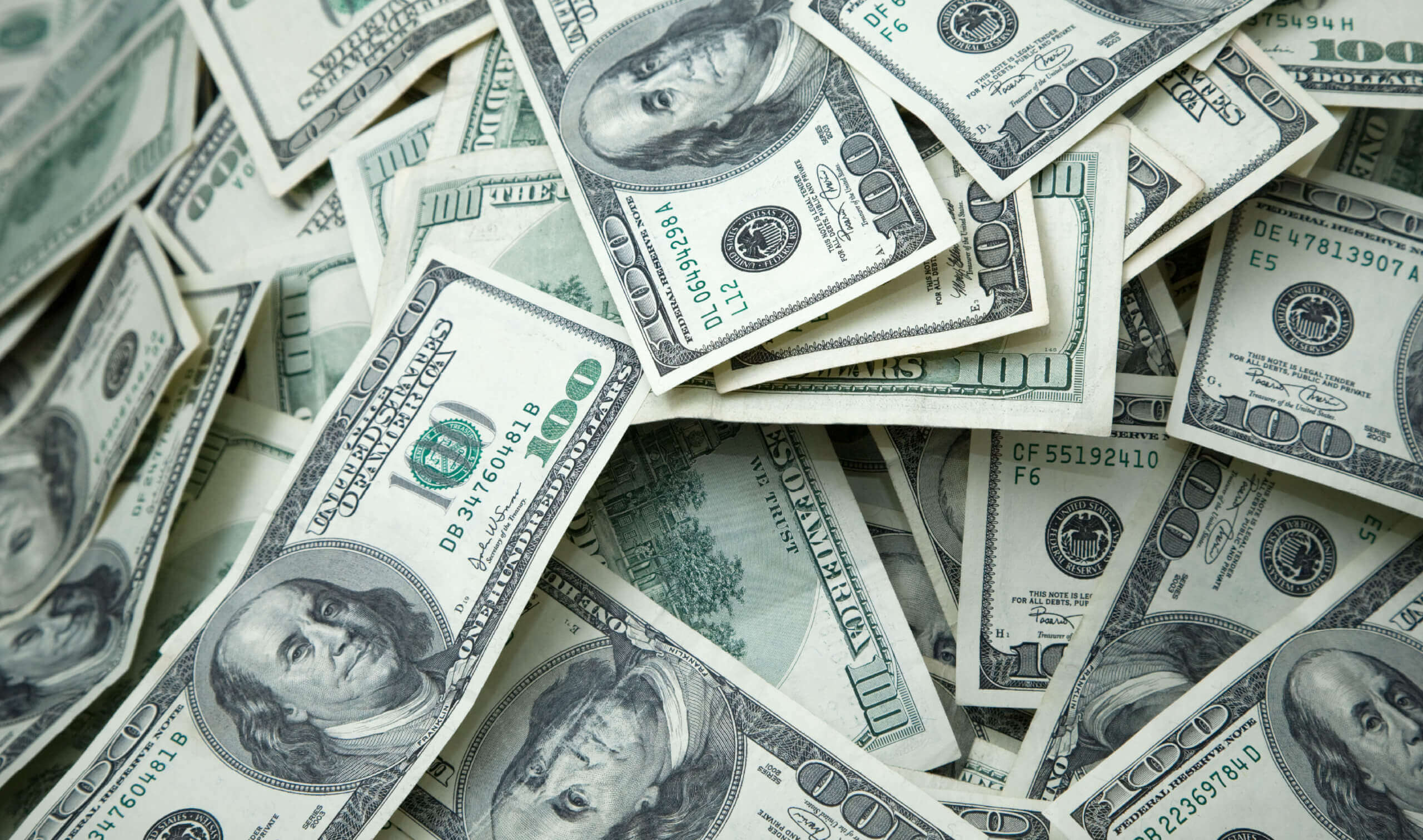This large numerical value holds significant importance when discussing vast quantities. For example, consider the following statistics::
- As of January 1, 2025, The U.S. Census Bureau estimates the world population is just over 8 billion people — 8,092,034,511 to be exact.
- A recent McKinsey report notes that the world has never been wealthier than it is right now. Global net worth has more than tripled between 2000 and 2020, growing from $160 trillion in 2000 to $510 trillion in 2020.
- There are currently 3,028 billionaires around the world worth over $12.2 trillion. They include Elon Musk ($342 billion), Jeff Bezos ($215 billion), Mark Zuckerberg ($216 billion) and Rihanna ($1.4 billion), to name just a few.
For most people, visualizing values of a million, a billion or a trillion is incredibly challenging, given the sheer vastness of these figures. The human mind is simply not accustomed to entertaining values this large.
You might be able to roughly visualize 80,000 people with an aerial shot of a football stadium, but getting a mental picture of larger amounts is very hard, and there is a huge difference between conceptualizing a million, a billion and a trillion.
The Difference Between a Million, a Billion and a Trillion
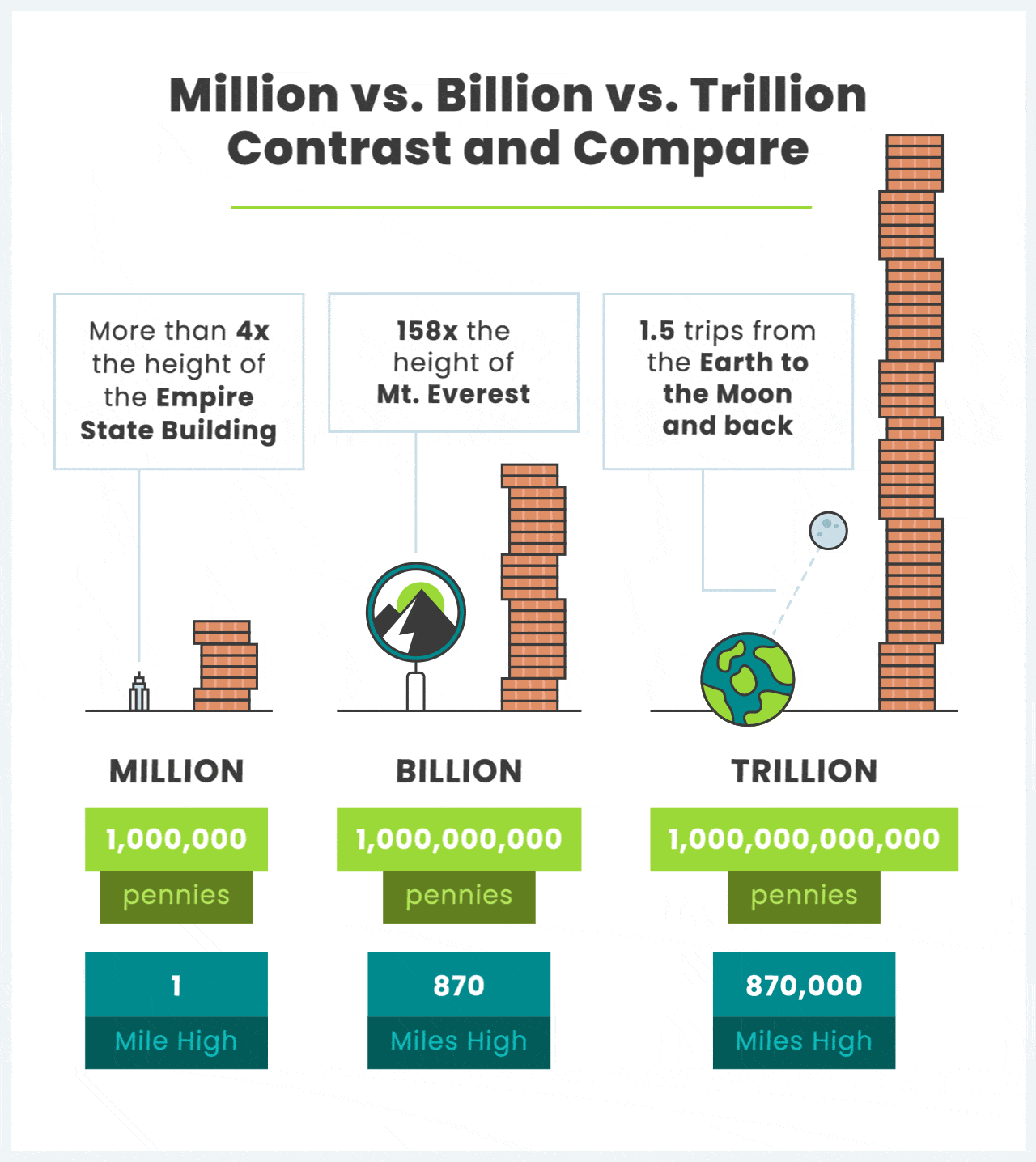
One million is the equivalent of 1,000 multiplied by 1,000 and is written as a one followed by six zeroes.
1,000 x 1,000 = 1,000,000
1,000 x 1,000 = 1 million
One billion is the equivalent of 1 million multiplied by 1,000 and is written as a one followed by nine zeroes.
1,000,000 x 1,000 = 1,000,000,000
1 million x 1,000 = 1 billion
One trillion is the equivalent of 1 billion multiplied by 1,000, which is represented by a one followed by twelve zeroes.
1,000,000,000 x 1,000 = 1,000,000,000,000
1 billion x 1,000 = 1 trillion
When dealing with such large numbers, many scientists, researchers, astronomers and others use a shorthand called scientific notation. For example, instead of expressing 1 billion as 1,000,000,000, they utilize 109 (10 to the 9th power). Likewise, instead of specifying 1 trillion as 1,000,000,000,000, they utilize 1012 (10 to the 12th power).
Let’s Talk About Your Financial Goals.
Visualizing a Billion Dollars
To comprehend an incredibly large number, it helps to break it down to smaller and more relatable amounts.
For example, if $1 billion was divided amongst the current total U.S. population of 341.1 million, each individual would receive about $3. In contrast, if we split $1 trillion between the same population, each person would get approximately $2,932.
Here are several other relatable examples:
As Time
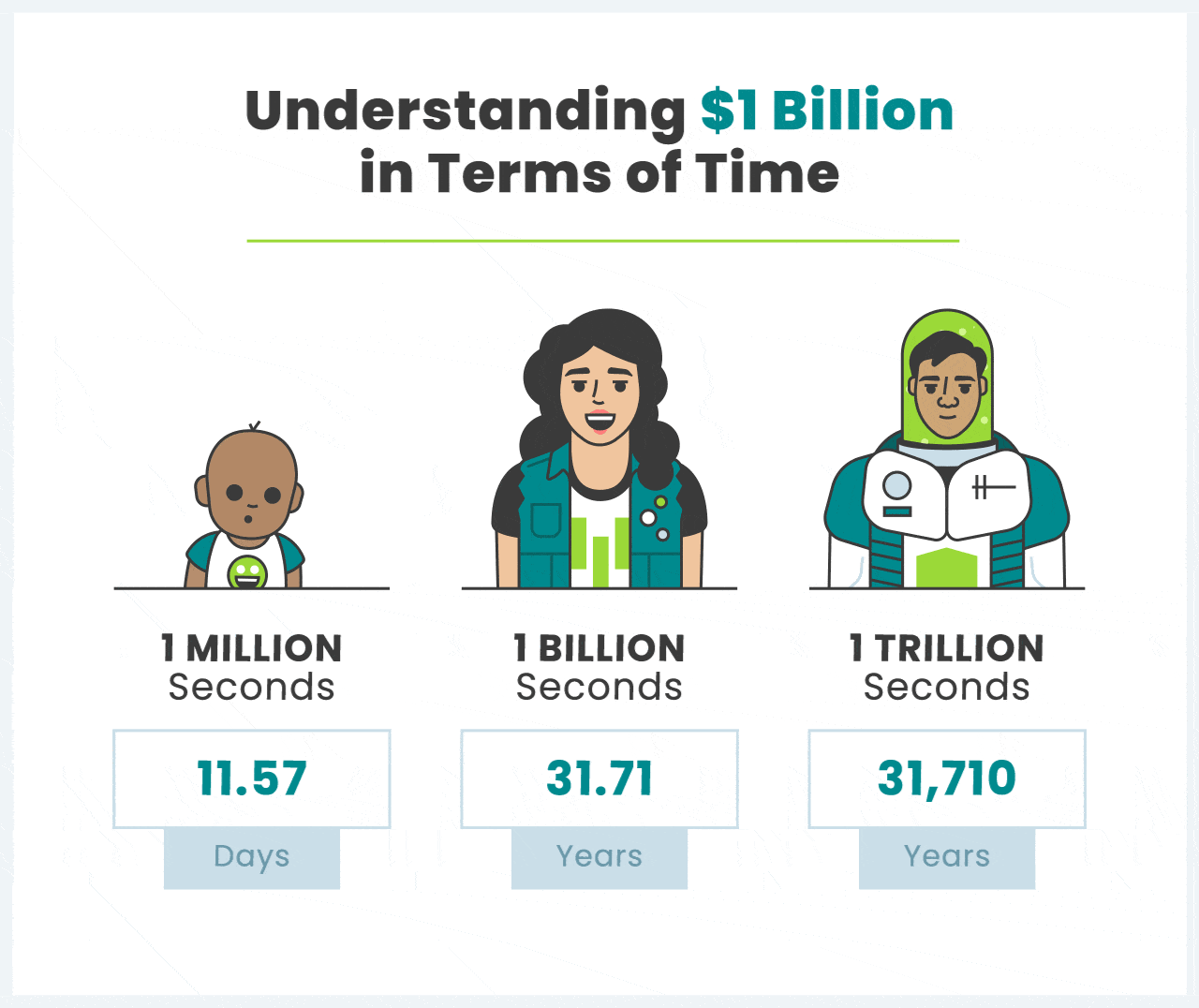
Another helpful method of understanding the value of a billion is to measure it in terms of time, specifically seconds. People experience their one billionth second at 31.71 years of age. In comparison, 1 million seconds of life occurs at 11.57 days. If it were physically possible, a person would reach 31,710 years of age at the 1-trillion-second mark.
As Food
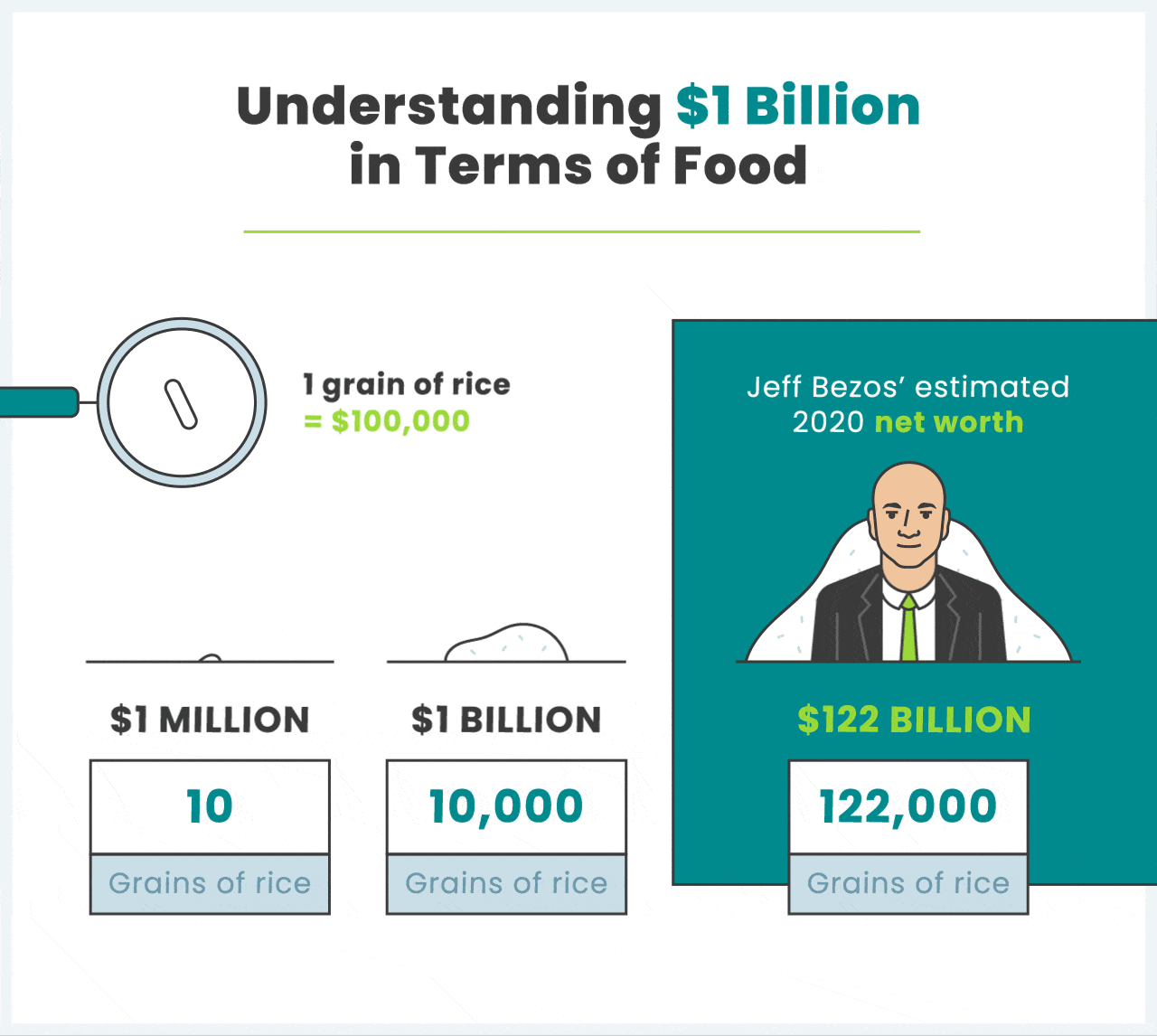
In 2020, a TikTok star used grains of rice to illustrate the differences between large dollar amounts, with each grain representing $100,000. His piles of rice grew from a single grain to 10 grains, representing $1 million, and then to 10,000 grains, representing $1 billion. Then, he took it a step further by purchasing enough rice to represent Jeff Bezos’ estimated net worth at the time, which was $122 billion. That massive sum amounted to 58 pounds of rice.
As a Very Long Walk
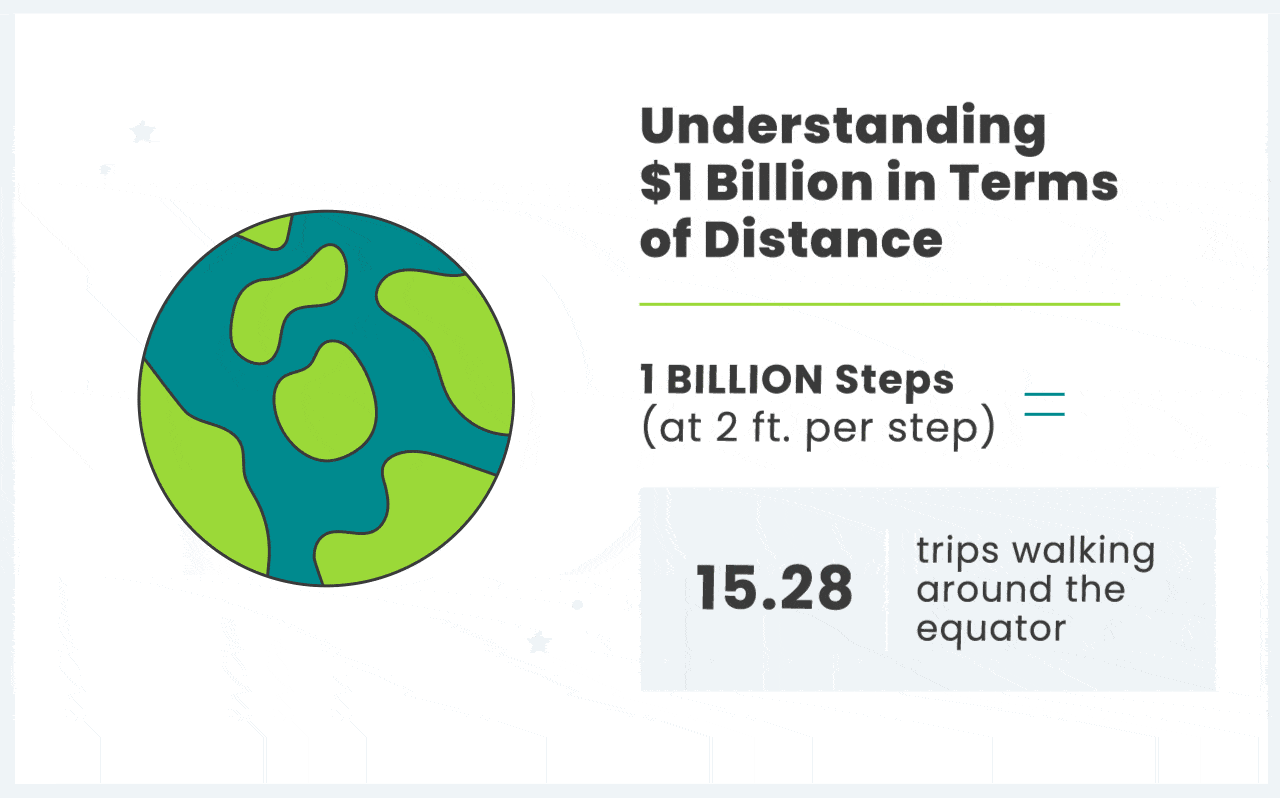
How much distance can you cover with a billion steps? Well, assuming the average person’s footstep approximates a 2-foot stride, then a 1 billion-step journey around the planet would be the equivalent of 2 billion feet walked.
Since 1 mile equals 5,280 feet, the total mileage is as follows:
2,000,000,000 ft. / 5,280 ft. per mile = 378,788 total miles
To put things in a global perspective, let’s incorporate the distance around the equator, which is roughly 24,793 miles. Basically, what we are saying is that 1 billion steps equates to over 15 trips around the earth’s equator. The math is as follows:
378,788 miles / 24,793 miles = 15 times around the equator
Why Picturing $1B is Challenging
Mathematician Spencer Greenberg provides some insight into why human brains struggle to comprehend large quantities such as a billion. He explained to Gizmodo:
“We can easily visualize five things. We can even roughly visualize approximately 100 things — by, say, picturing a large crowd gathered. But when we’re talking about millions of things our ability to visualize completely fails.”
He goes on to note that, based on visual experience, people develop an intuition across their lifetime to “feel” that 10 is much bigger than one and that 100 is a drastic increase over 10. But, because people do not receive visual references to connect to large values, they never develop the same “feeling” about a billion versus a trillion.
Greenberg recommends converting large numbers to alternate units of measurement to reduce the numbers to more comprehensible amounts, such as the examples above.
Join Thousands of Other Personal Finance Enthusiasts
A billion dollars may not have a direct relationship to your retirement savings, but it does bring up the point that you should be more focused on managing your expenses and investing within your risk tolerance as opposed to having a goal of having a certain amount of dollars. But particularly for younger investors who are not close to retirement, it can be motivating to set a short-term goal of having retirement savings of a specific total.
How Long Would It Take To Save $1B for Retirement?
Retirement statistics indicate that the median household retirement savings for American workers is only about $93,000, and that 44% of retirees regret not saving and investing for retirement sooner. Saving as early as possible and implementing effective investment strategies are important aspects of planning for retirement and absolute requirements for accumulating $1 billion. For most people, however, saving $1 billion is out of reach.
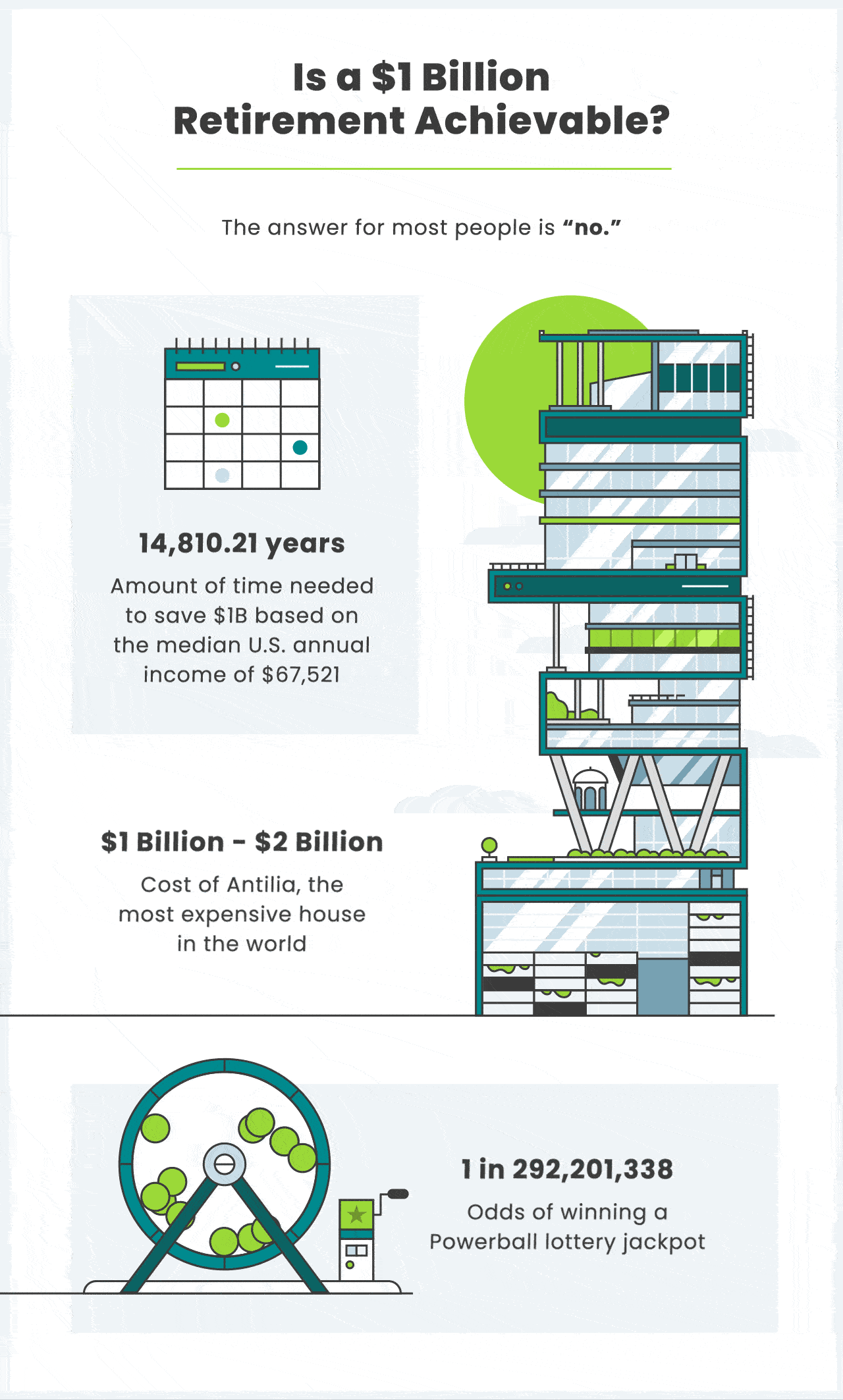
Via Salary
According to the U.S. Census Bureau, the 2023 median family income in the United States was $78,538. Assuming every penny of their salary was deposited directly into savings, with no taxes levied or living expenses incurred, and remained untouched, as illustrated below, these families would still face a very long wait to accumulate $1 billion.
$1,000,000,000 ÷ $78,538 = 12,732 years
Real-life economic conditions entail taxes, living expenses and interest earned on savings and investments. Depending on your annual income earned and the three aforementioned variables, the odds of attaining $1 billion can increase or decrease. Nevertheless, it is a very unrealistic target for the vast majority of people.
Via Real Estate Investments
McKinsey’s report on global wealth notes that real estate accounts for two-thirds of the net worth of the world’s wealthiest people, largely thanks to the relatively consistent income and capital appreciation these investments offer.
Alice Walton, the daughter of Walmart founder Sam Walton, is the second wealthiest woman in the world, with estimated assets totaling $61.6 billion as of Nov. 28, 2023. She believes that real estate investments should grow her wealth, not simply protect it.
Many wealthy investors agree with her and strive to do so in a diversified manner to achieve an optimal risk-return profile. However, it’s worth noting that some mega-wealthy investors are comfortable taking substantial positions in individual properties.
For example, business magnate Mukesh Ambani acquired the first-ever billion-dollar private residence. Known as Antilia and located in Mumbai, India, it was constructed in 2010, spans 400,000 square feet and has a current market value of nearly $2 billion.
Via Lottery Winnings
As crazy as it sounds, a 2019 survey revealed that nearly 25% of the millennials surveyed said they are basing their retirement plans on winning the lottery. This strategy is risky because the odds of winning a Powerball jackpot are statistically low, standing at 1 in 292,201,338. Those odds decline even further when the goal is to become a lottery billionaire, considering lottery prizes over the $1 billion mark have only been awarded nine times in the United States.
Three lucky winners split a $1.58 billion jackpot in 2016. They were spread across the country, residing in California, Florida and Tennessee. Each ticket was worth $528.8 million. All winners have the option of taking their lottery prize payouts via either an annuity that distributes funds over many years or a lump-sum payment.
Closing Thoughts
Achieving a net worth of $1 billion dollars is something everyone would like. Unfortunately, it isn’t a realistic goal for the vast majority of people. That said, by taking the time to properly plan for retirement, you can significantly grow your personal wealth, create a comfortable retirement lifestyle and tackle some bucket list ideas. A qualified financial advisor can help you formulate an optimal plan and answer your questions.
Editor Chase Campbell contributed to this article.


